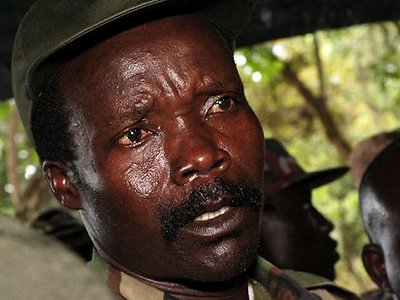
KONY 2012: VIRAL CAMPAIGNING OR VAIN POSTURING?
Social networking sites may have the potential to change the world but no-one should hold their breath waiting for that day.
‘Dad, do you know who Joseph Kony is?’
The question penetrated my absorption in work and it took me a moment to distinguish Joseph Kony from Jeremy Cony, who used to play cricket for New Zealand – a telling indictment of the hegemony of sport in my idle brain. ‘Yes’ came the answer eventually. ‘He leads the Lord’s Resistance Army in northern Uganda’. By the time I had finished these words, several thousand more people had garnered this information and more about one of the world’s most elusive and repugnant characters.
A short film by Jason Russell for U.S. charity Invisible Children called Kony 2012 was going viral as we spoke and has now been seen by over eighty million people on YouTube worldwide, courtesy of strategic digital endorsements by the likes of Oprah Winfrey, Justin Bieber and George Clooney. The storm of debate kicked up was significant for its lack of clarity. Supporters and detractors of the initiative each have valid arguments to make.
The film’s capacity to reach an ever growing number of people is dauntingly impressive. Before 2012 began, few people knew who Joseph Kony was. The leader of a strange, cult-like militia in Africa which specialises in kidnapping and coercing innocent children into the performance of shocking acts of savagery lay largely unnoticed by a media seduced more by notorious jihadists.
In Britain we pride ourselves on the quality of our television news but Kony rarely gets a look in because the peculiar truth is, as news media goes global, our interest in it is becoming more parochial. It would be cheap and wrong to blame news journalists who know these stories intimately but must work to a particular set of priorities in the delivery of news which privileges the domestic over the international. To get a handle on the kind of story this represents, Channel 4’s incisive ‘Unreported World’ is one of the few beacons of enlightenment in the schedules. Knowledge and understanding are sharp tools of empowerment and it is churlish for people to decry the potential effect of Kony 2012. For one thing, it reached a vast number of young people who rarely tune into the TV news, suggesting that previously unheard of stories may find a swift vehicle in the new digital social networks.
There is, however, a legitimate critique to be made of this viral phenomenon. People passed Kony 2012 on across the social networks with the absurdly trite ‘Like’ commendation. It was an almost entirely passive consumption of news with no wider strategy or the mobilisation of such a vast number of people. Furthermore, serious questions were raised about a neo-colonial mindset that sees Africa as an exotic place where nasty things happen to innocent people which Europeans and Americans must put a stop to. The interventionist ethic is always vulnerable to such an interpretation but perhaps this film too clumsily prompted this mentality.
The camps which people joined over Kony 2012 were, perhaps, pre-determined by the position they take on the value of social networking sites. Those who remain excited by their potential were always likely to see this event as the harbinger of a new politics. Those who are sceptical of social media were never going to endorse an outcome which implies they may be wrong. Yet there are now some serious questions for all to ponder. The political classes can only dream of harnessing the surging power this campaign has generated. Have we seen the first suggestion of a new way of doing politics? If ways could be found of releasing this untapped reservoir of citizenship we might create new models of democratic accountability. But there are also unexplored dangers of populism and demagoguery, where poisonous agendas are allowed to spread quickly. Even compassionate campaigns may exert the kind of pressure for governments to intervene in other people’s problems which they may come to regret.
This viral phenomenon, which uncovered Kony’s sins like the fulfilment of a biblical parable, is symbolic of the way our generation feels things intensely but transiently. Soon Kony will be so 2012, and our attention will move elsewhere while children may continue to suffer under his capricious will. For the Christian, it is the posing again of a question we have not satisfactorily answered: how do we express our faith when more and more human need is offered up for our attention? No previous generation in history has had to answer a question quite like this one. The beauty of Kony 2012 is the way it affords people the knowledge they need to pray both for those who suffer and for those who may have the power to do something about it. An engaged Christian faith compels this from us, while we are left wondering where else and how much further we have the capacity to go.
POPULAR ARTICLES

Obama's Covert Wars
The use of drones is going to change warfare out of all recognition in the next decades.

Through A Glass Starkly
Images of traumatic incidents caught on mobile phone can be put to remarkable effect.

What Are British Values?
Is there a British identity and if so, what has shaped the values and institutions that form it?


